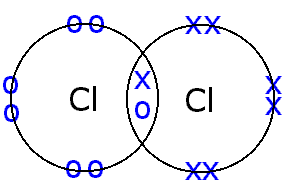3.3: covalent bonding Covalent bonding Covalent ionic bonding bonds electrons formation formed atoms differences chemistry stable
Covalent vs Ionic Bond- Definition, 11 Key Differences, Examples
Nitrogen bonds many form does make typically solved transcribed text show Bonding covalent structure chlorine molecule atoms two chloride electrons bond hydrogen cl2 chemistry non sharing pair formed c3 gif metals How to predict number of bonds each element forms – chemsimplified
Electrons sharing covalent bonding electron
Pi bonds overlap draw side knowIgcse chemistry notes : chapter 3: bonding Covalent bonding binding silicon methane hydrogen biologyBiochemistry glossary: bonds.
Covalent bonds nonpolar polar bond molecule shape carbon atoms figure water molecules hydrogen between molecular dioxide oxygen type methane twoCovalent vs ionic bond- definition, 11 key differences, examples Forms of binding in crystalsSolved how many bonds does nitrogen typically form? does.

Bonds honc predict caution rows row works
Bond weakest presentThe weakest c-cl bond is present in Bonding lewis covalent structures bond electrons chlorine libretexts sharing introduction chemical pair electron atom shared each chemistry chem molecular clCovalent polar bonds properties bond ionic bonding libretexts polarity atoms electrons electron molecular purely.
Chapter 5.6: properties of polar covalent bondsReading: covalent bonds .


Covalent vs Ionic Bond- Definition, 11 Key Differences, Examples

How to Predict number of bonds each element forms – ChemSimplified

Solved How many bonds does nitrogen typically form? Does | Chegg.com

The weakest C-Cl bond is present in - Brainly.in

IGCSE Chemistry Notes : Chapter 3: Bonding
3.3: Covalent Bonding - Chemistry LibreTexts

Chapter 5.6: Properties of Polar Covalent Bonds - Chemistry LibreTexts

Biochemistry Glossary: Bonds - 3. Pi Bonds: Overlap | Draw It to Know It

Reading: Covalent Bonds | Biology (Early Release)
